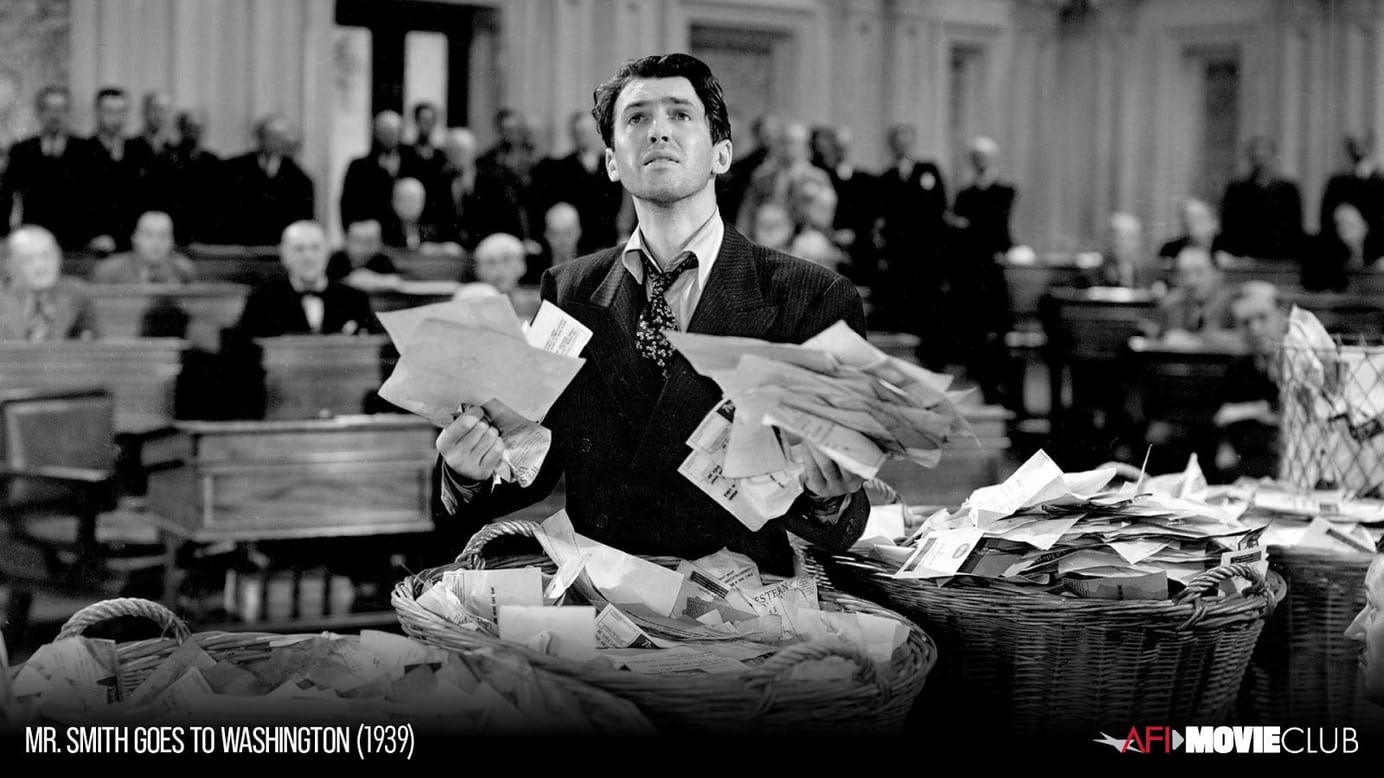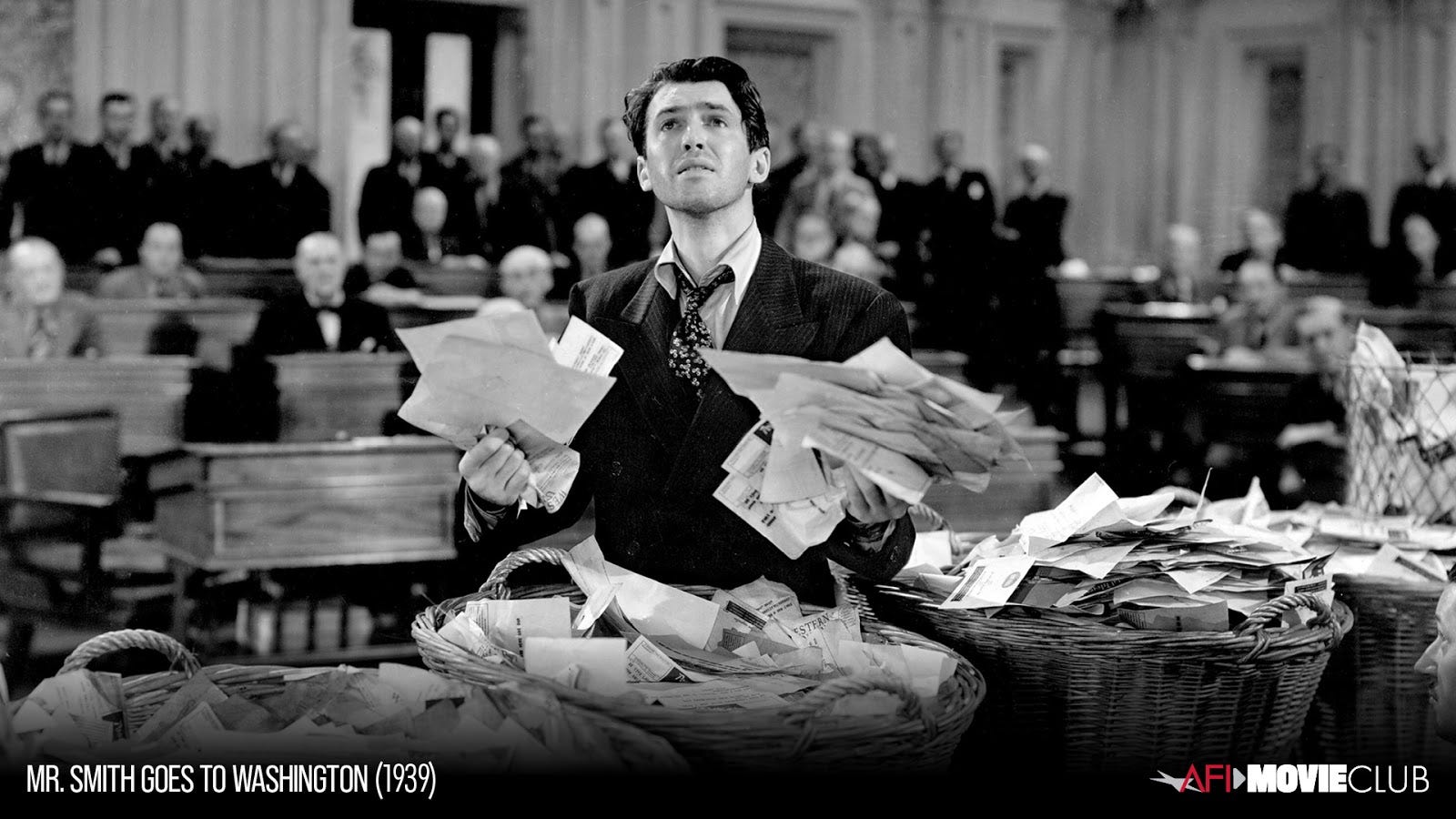
A Citizen's Guide to Abolishing the Filibuster
Table of Contents
The battle for the filibuster is heating up in the Senate. Mitch McConnel is shaking in his Minority Leader boots, reform skeptic Senators are showing signs of life (California, make your voices heard!), Biden supports reform, and the Jonas Brothers have hopped on board. With Democrats controlling two branches of government, the air is ripe for reform.
But if you’re not a political wonk, the filibuster is just another confusing Senate procedural term you hear. So why is the filibuster the greatest and most consequential fight that Democrats will face during Biden’s presidency? Why is it so crucial that the filibuster be abolished or in the least reformed? And what can we, as normal citizens, do about it?

What is the Filibuster?
If you think of my good friend Jimmy Stewart in the acclaimed 1939 film ‘Mr. Smith Goes to Washington’ when you hear the word filibuster, you will be surprised to hear that the filibuster is way less cinematic and far more harmful.
In simple terms, the filibuster is when a Senator stalls action by extending debate or using other tactics. Today most filibusters don’t even involve Senators talking for hours on the Senate floor. Senators can simply threaten to filibuster, register their objection, and then the bill doesn’t get to the floor.
There is a mistaken belief that the filibuster was central to the Founding Fathers’ idea of the Senate as a deliberately slow body to allow the minority to have a voice. In fact, the filibuster was created by accident. In 1805, Aaron Burr (of Alexander Hamilton's murderer fame) wanted to make the Senate less complicated so he took out a bunch of rules and inadvertently created the filibuster by making it harder to cut off debate by a simple majority. The filibuster wasn’t widely used until the late 1800s where it has been blocking progressive legislation for over a century.
Historically, the filibuster has allowed a minority to take down popular legislation.
A shrinking minority has been able to control the debate and limit the government's ability to achieve a truly multiracial democracy that the 13th, 14th, and 15th Amendments provided. Here’s just a fun snapshot of a few pieces of legislation that were killed because of the filibuster:
- Blocked legislation to limit slavery's expansion into the Western states before the Civil War.
- Almost all major civil rights legislation like the expansion of education, economic, or voting rights for Black Americans.
- Sen. Strom Thurmond won the award for longest filibuster to oppose the Civil Rights Act of 1957 which stalled the legislation for 3 more months.
We would be living in a very different and more equitable democracy without the filibuster. Can you imagine?
Why Abolish It?
Well, that’s an easy answer. Ease the gridlock in Washington and pass popular legislation that will have a dramatically beneficial impact on Americans’ lives.
Not to get too dramatic, but ending the filibuster is crucial to democracy reform. If democracy reform bills are not passed, America could live in minority rule for the next few decades. Republicans are shrinking voting access across the country now (predominantly focused on black and brown communities) so that they can stay in power when they know they don’t have the votes. A society that is becoming more diverse each year cannot sustain white male minority rule.
Here’s a dream list of just some of the legislation that this Congress could get done if the filibuster was not a hindrance.
- Make it easier for citizens to vote (yes everyone, even Republicans)
- Universal background checks for gun purchases (as we’ve been reminded this week, gun violence is also an epidemic)
- Fight the climate crisis and create jobs while doing it
- Improve the countries degraded infrastructure
- Provide accessible broadband internet services to rural communities
- Grant D.C. residents statehood (D.C residents may not have tea like the Boston Tea Party but they do have taxation without representation)
What to Do About It?
Now, this all sounds like an uphill battle. There are only 50 Democratic Senators and Joe Manchin (D-WV), Kyrsten Synema (D-AZ), Diane Feinstein (D-CA), and others who have been steadfast about their love of an old Jim Crow relic. But we have more power than we think if we can come together and pressure these Senators to see the forest for the trees.
In order to hit the tipping point, we must incentivize these Senators that reforming the filibuster will do more for their reputation than keeping it. In order to do that, we need to make everyday Americans care about what will happen if the filibuster is gone so that there is so much pressure on these Senators that there’s nothing else they can do, but abolish it.
Contextualize the Issue
There is a marketing principle known as “Jobs to be Done.” It’s the idea that when promoting a product, marketers should look beyond the need to buy the product, but to why the customer needs to buy the product. What do they hope to accomplish? A simple example is a new homeowner doesn’t need a hammer just to own a hammer, they need a tool to hang art and personalize their home. A message about home personalization is much more relatable than an ad demanding they buy a hammer.
The same concept is true here. America does not need the filibuster to go away just because. The abolition of the filibuster is a tool to allow for more popular legislation to pass so that Democrats can prove that they are the party that wants to help everyday Americans. These Senators, and in turn their constituents, need to understand what they get without the filibuster for them to care about abolishing the filibuster. Right now, Senators are incentivized to do nothing because their constituents aren’t raising a fuss about it.
Localize the National Debate
The only way for Senators to change their mind is to put pressure on the places that it hurts. In this instance, it's their constituents. Most people don’t care about national politics unless it directly impacts them. The messaging surrounding the filibuster should be discussed in a personalized way. Take the Senators who are on the fence, what do their constituents care about?
What are the incentives for West Virginians? Rural broadband internet.
What are the incentives for Californians? Progressive climate crisis action.
What are the incentives for Arizonans? Finally address mass shootings and gun rights.
Now, these might be very basic examples, but you get the gist. When it comes to messaging, always tie the issue through to the incentive of the audience in an easily understandable way.
This is Everyone’s Issue
Ending the filibuster and passing democracy reform will impact every single issue that Democrats raised on the campaign trail. It is in the President’s, the Senate’s, and the House’s best interest to end the filibuster. The best way for Democrats to retain control of these bodies is to prove to the American people that they can get stuff done.
For this reason, there should be a national mobilization around this issue. Non-profit organizations should begin partnering and spreading a consistent message about the filibuster. Turning focus to one national issue that impacts all issues will increase awareness and highlight the gravity of the situation.
Many groups have already begun doing this. A coalition of 43 progressive organizations including The Sunrise Movement, Voto Latino, and March for Our Lives have come together to focus their ad dollars and messaging on abolishing the filibuster. The coalition has plans to launch a six-figure ad buy targeting Democratic senators in Washington and in their home states to call for ending or reforming the filibuster.
Make it Viral
The best way for individual citizens to raise this issue is to share it with their friends and family. The more people understand the connection of the filibuster to issues that are important to them, the more they will care. And the easiest way to get the word out is through social media.
As much as I hate it, people need to be motivated to post on Instagram or Facebook. Millennials and Gen Z typically have highly curated social media accounts. They are much less likely to post a political message from a screenshot of a tweet, but they will if it fits their “brand vision.” Having aesthetically pleasing, colorful layouts will incentivize more people to share which in turn creates a ripple effect of more people sharing that will help the issue gain steam.
Start Spreading the News

Now to bring it all together. The Knurdology Instagram account shared the above posts earlier today. What does this post accomplish?
- It contextualizes the issue - tying the filibuster to saving democracy raises the stakes.
- It localizes the national debate - pick an issue that you care about. The filibuster impacts it.
- It can more easily go viral - a clean design that is easily shareable across social media.
- It has a call to action - always have something for people to channel their energy so they can feel like they are doing their part.
With a sustained effort, Democrats are and can continue to turn the tide towards filibuster reform and accomplish the Biden agenda. And it takes all of us to do our part to spread the word.
🌱 the roots of change newsletter 📚 Newsletter
Join the newsletter to receive the latest updates in your inbox.







